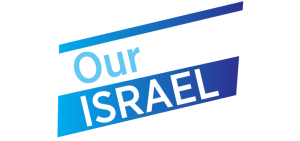
J Street is committed to a shared vision of freedom, safety and equality for every Israeli and every Palestinian and works to secure Israel’s long-term future as a truly democratic homeland for the Jewish people.
J Street’s “Our Israel” project spotlights the amazing Israeli groups who share our vision and our values, and who work to build and preserve a liberal, democratic society underpinned by the principles of equality, freedom, justice and peace. Together, they stand on the front lines in the fight to build a society that lives up to the founding values of democracy, self-determination and equality which are enshrined in Israel’s Declaration of Independence.
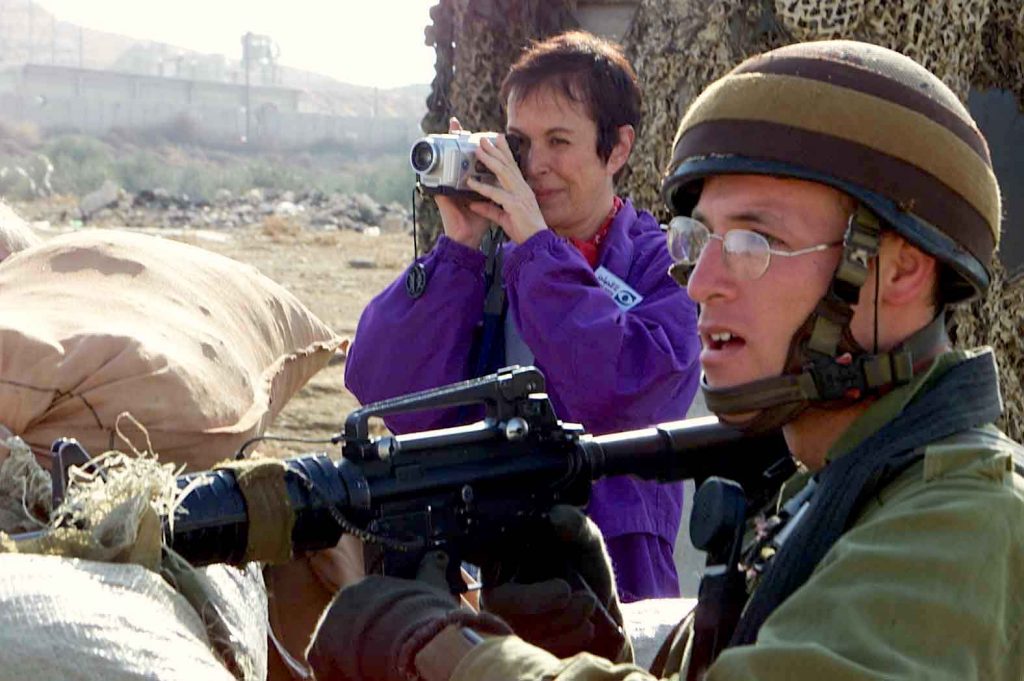
A Palestinian man is denied access to a field he has owned and plowed for decades. A bride-to-be is refused passage to a visa appointment to travel to her wedding in America. Palestinians are handcuffed and left to wait hours in the heat so soldiers can run checks which only take minutes. A soldier laughs after destroying a gift given to an older Palestinian man by letting it fall off the end of an x-ray conveyor belt.
These are among the thousands of injustices meticulously documented by MachsomWatch: Women Against the Occupation and for Human Rights — also known as Checkpoint Watch — an Israeli organization dedicated to observing, addressing and reporting on the indignities inflicted upon Palestinians not just at checkpoints but, throughout the occupied West Bank.
“We shy away from sharing our stories about confrontations with soldiers,” says veteran ‘Watcher’ Ina Friedman, “what may or may not happen on our shifts is not about us. It’s about the drudgery, frustration, humiliation and absurdities in day-to-day life that the occupation imposes on the people.”
MachsomWatch was founded in 2001, the early days of the Second Intifada, at a moment marked by rising frustration and hopelessness within the Israeli peace movement.
Three Israeli women — Adi Kuntsman from the Soviet Union, Ronnee Jaeger from Canada and Yehudit Kirstein-Keshet from the UK — had heard a deluge of reports of human rights infringements at Israeli checkpoints, including sick and pregnant Palestinians being prevented from reaching hospitals.
With backgrounds in activism and feminism, the three set out to see the situation for themselves. At 5:30 am they traveled with two friends to a checkpoint on the outskirts of East Jerusalem, introducing themselves to bemused border guards.
“We stood there that first morning and didn’t know what to do or how to do it, but we wrote down everything we saw into our notebooks,” Kirstein-Keshet recounted the following year. “It was part protest, part resistance, part appeasement of our own consciences.”
What they found was that their presence, and implied oversight, became a moderating force at the checkpoints. They came back again, recruiting additional women and visiting new checkpoints. After a few months, the group had grown to 30. A few years later, hundreds had joined the effort.
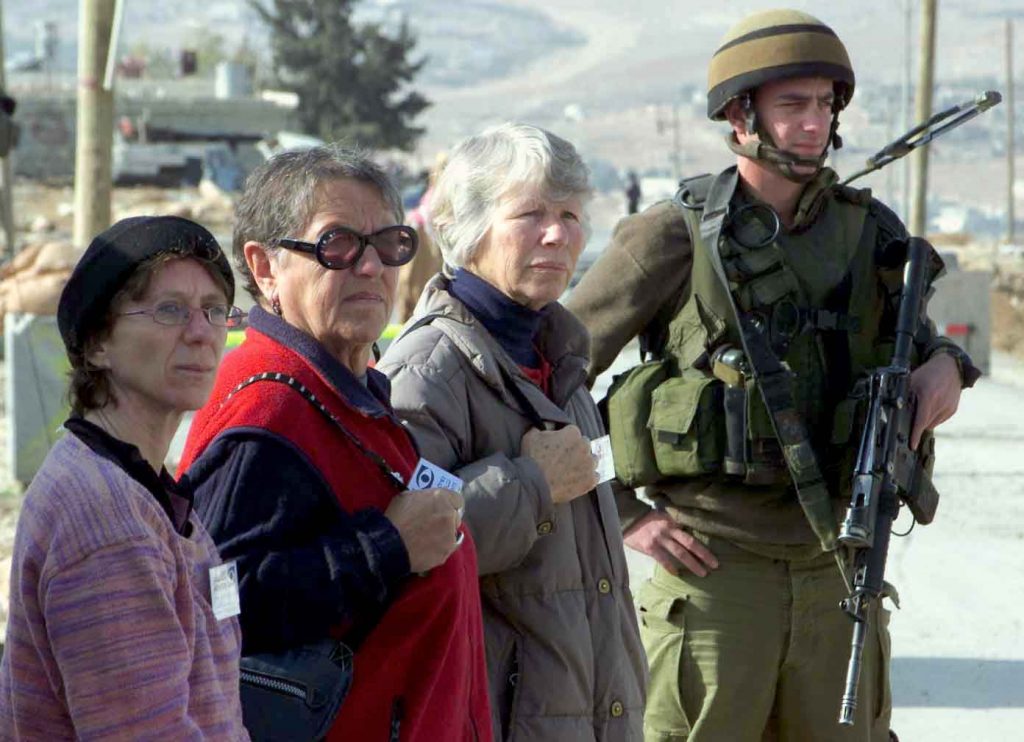
Across the West Bank, a vast and seemingly arbitrary system of checkpoints and roadblocks strangles the Palestinian people’s freedom of movement and throttles their ability to access education, employment and medical care — a constant reminder that they live under 24/7 military control.
Not only are there checkpoints at entry-points into East Jerusalem and Israel, but there are permanent checkpoints scattered across roads and gates deep within the West Bank, agricultural checkpoints that block farmers from reaching their orchards and crops, and temporary “flying checkpoints” established at random wherever Israeli authorities choose.
“They’re a major disruption to Palestinian life, costly in terms of time, anxiety and dignity,” says Friedman. “Their security value is open to question.”
Members of MachsomWatch tell a familiar story, one which often starts with uncertainty in a first visit but soon develops into an addiction fueled by an inability to accept the ongoing obstacles and humiliation forced upon everyday Palestinians. “Once you start, you can’t stop being involved in this work,” says another veteran Watcher, Daphne Banai.
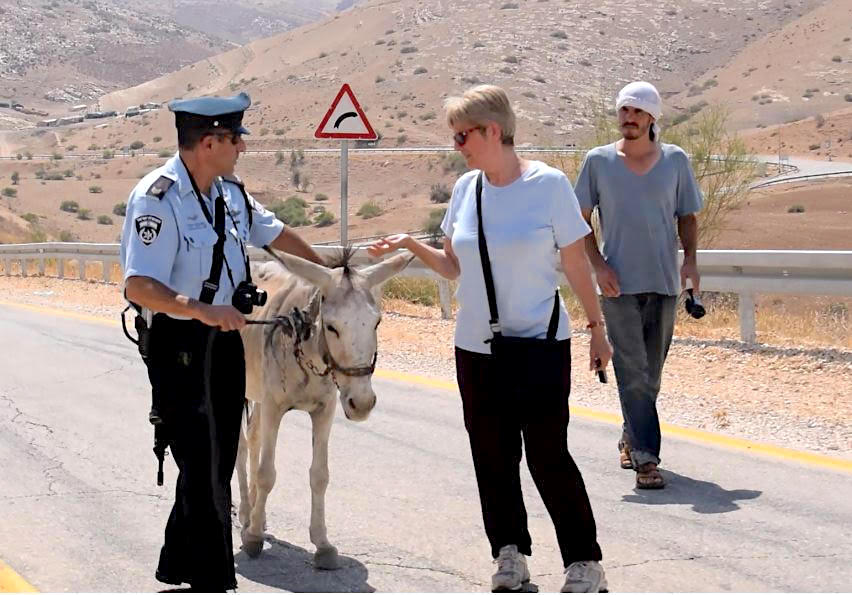
While the Watchers mostly observe, they do intervene on behalf of Palestinians when there’s a problem with the border guards. Sometimes they’re able to persuade guards to be more flexible; sometimes the suggestion of a call to superiors, lawyers or other outside help swiftly resolves delays facing the passage of an ambulance or pregnant woman. For their efforts, members of MachsomWatch have been branded “traitors” and “enemies of Israel” by the Israeli far-right.
“We consider it a win if we are able to solve a problem, however small, for an individual or two at a checkpoint, or by working behind the scenes,” Friedman says. “Our motto should be ‘She Persisted,’ because that’s really what we’re about: Thousands of little wins accumulated over the years under disheartening conditions.”
Soldiers range from friendly and subtly supportive to wary or downright hostile, Friedman says. Co-founder Yehudit Kirstein-Keshet wrote that in their own way, members of MachsomWatch can be somewhat disarming. “Most of us are women over the age of 35, and they treat us like dotty old aunties.”
Over time, Banai says, appealing directly to soldiers for them to use their discretion has become increasingly difficult. “In the past, we could have has talks with some soldiers but today they arrive equipped with orders not to talk with us and with hostility toward the Palestinians and us,” she says, “it’s very worrying.”
MachsomWatch seeks a future in which both Israelis and Palestinians are free of the burden and cruelty of the occupation.
Friedman says that being women is definitely an advantage when dealing with soldiers. “We present a civilian, non-violent, feminine presence — although to some our very presence is regarded as provocative,” she says. “But much of the time, one’s equanimity and civility are successful in overcoming difficulties.”
Two core elements of that very first trip to East Jerusalem have become key components of their work going forward. Watchers make it standard practice to introduce themselves to border guards, with members now wearing large tags identifying them as members of MachsomWatch.
The practice of note-taking and photographing has become standard too, with the group producing and posting tens of thousands of shift reports on its website to share the realities and injustices of the occupation in Israel and abroad.
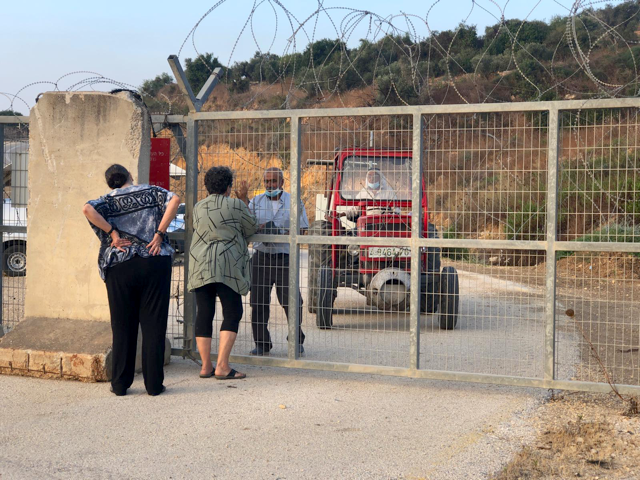
The reports detail lengthy lines at checkpoints, demolitions of Palestinian property and rock-throwing by settlers, but also cover the more everyday interactions which make up life on the side of the separation barrier most Israelis never see. There’s an account of a Palestinian family that makes cheese and flatbread for the volunteers, of the man selling tea near a checkpoint — proud of adding a new spice grown by his brother — of the children playing in a nearby spring on a hot day.
“Palestinians smile when we show up, some of them know us by name,” Friedman says. “Many a time they find an opportunity to tell us their troubles or to ask specifically for help with permits for blacklisted relatives or friends.”
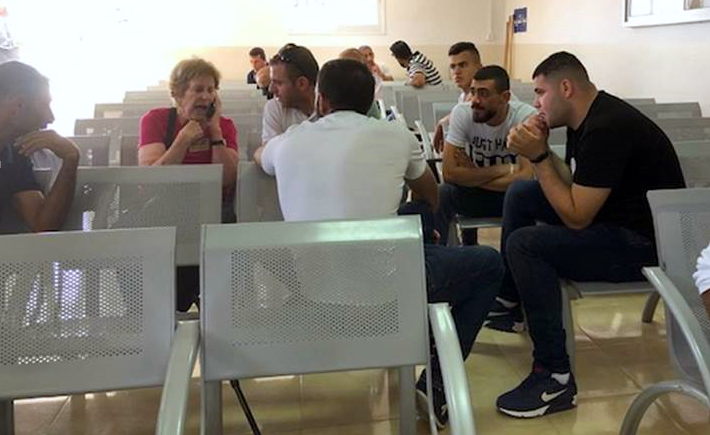
Over time, through exposure and experience, MachsomWatch volunteers have become experts in the Kafkaesque bureaucracy of the occupation and the Civil Administration. They calculate that in about a third of cases, they’re able to help overturn arbitrarily rejected requests for entry permits.
Being visible in opposing the occupation and being visible in supporting Palestinians is important to the group, Banai says. “The only Israelis most Palestinians encounter are those on the other end of a rifle or violent settlers who kill their herds, destroy their orchards, and burn their fields,” she adds. “We show them that not all Israelis support the ongoing occupation and that throughout Israel there are people who understand their plight.”
As MachsomWatch has grown, so has the scope of its operations. As well as observing checkpoints, volunteers also attend and report on military court proceedings involving West Bank Palestinians, all of whom, as residents of occupied territory, are subject to Israel’s alternate military legal system.
Still, despite all their reporting, it’s difficult to cut through. “Getting our messages about the occupation across to the Israeli public is probably our biggest challenge,” says Friedman. “Israelis are in deep denial about the Occupation, and it’s easy for them to avoid the subject”.
As well as shift reports, the group offers tours in the occupied West Bank and takes visitors along on checkpoint shifts; makes documentary films and presents webinars; meets with young people in pre-military academies; writes op-eds in Israeli outlets and engages with the media for comment, as well as tipping media off to newsworthy stories of hope and hardship.
“We take every opportunity to talk to Israelis, especially youth before their army service,” Friedman says. “Engaging Israelis in talk about the occupation is a hard row to hoe, but we do our best and take great satisfaction in positive feedback.”
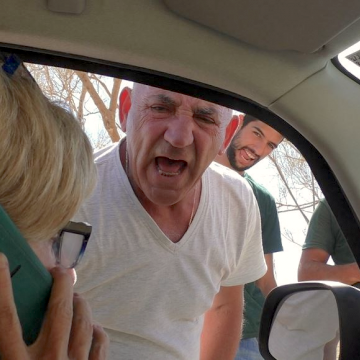
It’s not all depressing reports and tiny victories, however. The organization also runs a program bringing groups of Palestinian children and their mothers to the Mediterranean Sea, often their first experience of a beach. “We get permits for them to enter Israel, arrange the transportation, and provide them with lunch and afternoon activities,” Friedman says. “It’s an incredibly joyful experience.”
As MachsomWatch prepares to enter its 20th year, the organization has become increasingly distressed with the enduring occupation and the ongoing curtailment of Palestinian freedoms. “The longer the occupation goes on, the more entrenched it becomes, especially the bureaucratic strangulation of the Palestinian population,” Friedman says.
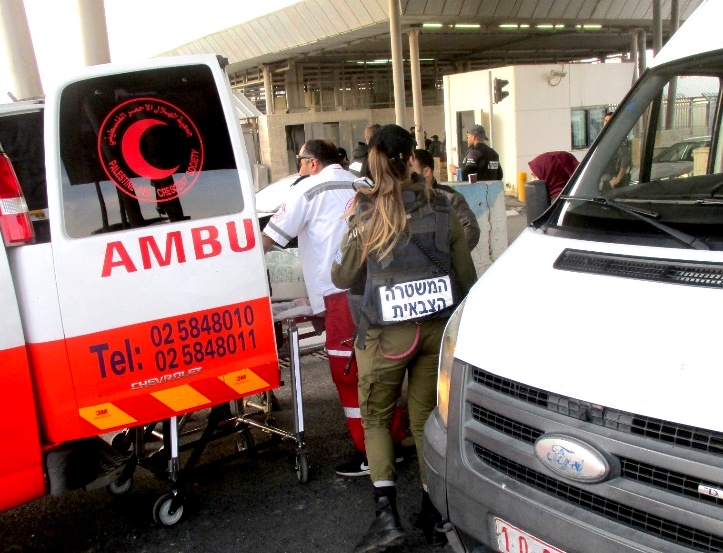
She notes that as a third generation of Palestinians grows up under occupation, hope for reconciliation seems increasingly distant.
Still, the group perseveres, driven by resolute opposition to the occupation and a commitment to democracy, the rule of law and basic human rights. “We might not be the ones to end a 53-year occupation, but we keep the conversation going about a situation which is morally untenable and continues to corrode the democratic and ethical fabric of Israeli society,” Friedman says.
“One state, two states — as an organization we have no position beyond the need to solve the Israeli-Palestinian conflict through direct negotiations, post-haste, and put this toxic occupation behind us,” Friedman says. “The vision of Israel we are working toward is one free of the burden of oppressing a neighboring people that deserves the same rights as ours, and an Israel whose citizens are free to speak out in the name of human rights, without fear of being attacked or branded as traitors.”